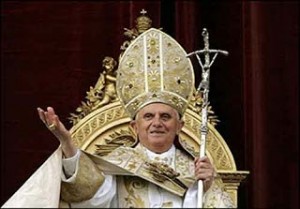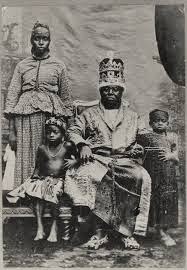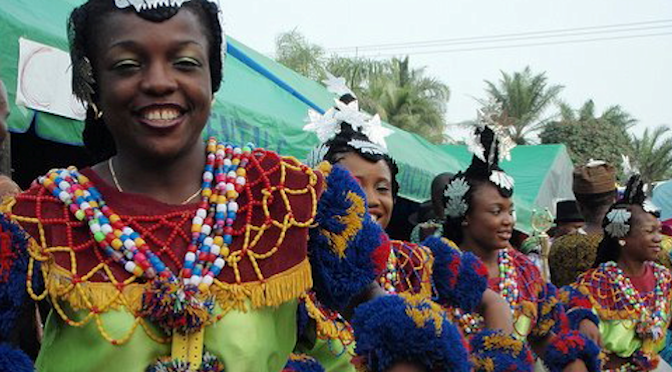Realizing that the fantasy genre can be pretty euro-centric, I decided to start researching mythologies of the world to potentially enrich the source materials and look for inspiration. These mythologies have their highs and lows, just like the ones we’re familiar with, and a part of this article deals with one of the lows. Don’t be confused and think this reflects the entirety of these people, however, and don’t think that we’re somehow much better. As I point out in this entry and many others, these cultures are not as different from ours as we think them to be – including our past flaws.
One of the great myths perpetuated about West Africa over time was that all of their religions were somehow “inferior” compared to the ones they were eventually converted to. And often the idea is that the conversion was “helpful” to them. These were excuses to try to ease the conscience of those who perpetuated so many things on the region. And. as seen with the Akan and the Fon, it was clearly never the case. I hope after the last few entries you’ve seen a lot of the similarities with other religions show the Europeans weren’t as “culturally superior” as they thought they were and that these cultures mirrored the more popular religions of our day in several ways.

So it was a great surprise, to me at least, that one of the cultures in West Africa actually asked for evangelicals to come to them. In 1842, two of the rulers of the Efik people in the southwest corner of Nigeria, King Eyo Honesty II of Creek Town (formerly Ikot Itunko) and King Eyamba V of Duke Town (formerly Iboku Atapka), issued letters to the European traders that they wished to maintain their long standing relationships with Europe and would like to have missionaries and traders come to their land.

For the kings, it was primarily a business decision. Prior to the end of the Atlantic Slave Trade, European contacts had been an important part of the economy in these towns. But with the end of the slave trade, and the chance the Europeans might move on, these kings saw an opportunity to improve their region and their standing by inviting the Europeans back. Issuing letters in December of 1842, the two kings invited the Europeans to modernize their territory and evangelize their population.
Today, many of the Efik people are Christian, but there are still others who follow the old religion. Which leads one to ask: if they weren’t forced to do it, what motivated so many of them to change? Though much of it could be attributed to pressure from their kings to appease the Europeans, the fact that it wasn’t forced on everyone lead me to ask just how this transition would have taken place.
And so, in the interest of seeing what may have facilitated that sort of change, today I look into… Continue reading Mythology World Tour: The Efik Religion


